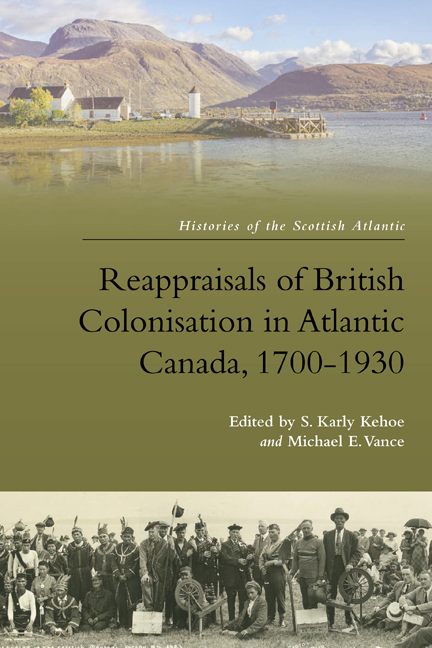3 - Barren Icy Rocks or a Nursery of Seamen? Debating Nova Scotia and Ideologies of Empire in the Era of the American Revolution
Published online by Cambridge University Press: 10 October 2020
Summary
In late May 1765, a very young Anthony Wayne sat hunched over pen and paper on the deck of a ship. For three weeks, he had been surveying the south-west coast of Nova Scotia. What he found exceeded all his expectations. Eager to report back to his employers in Philadelphia – a group of well-connected men that included Benjamin Franklin – he had flagged down a Halifax-bound sloop and was scribbling out a letter. The land he saw in Nova Scotia, he wrote, was ‘equal to any [in] Pennsylvania’, even ‘equal to any [he had] ever seen’. Anticipating that what was at that moment undeveloped coastal and riverine meadowland would ‘be a place of great importance in a very short time’, he instructed his employers to apply for lots in the city he was about to help survey. Modestly, it was to be called Jerusalem. ‘I do assure you the land exceeds any idea I ever could have formed of it before I saw it,’ Wayne wrote.
Wayne was not alone in Nova Scotia that summer. The warm months of 1765 unleashed a mob of so-called ‘land jobbers’ onto the province's shores, culminating in a frenzy of land granting in late fall timed to avoid the implementation of the Stamp Act. In a little over two weeks, the Nova Scotian government, acting on instructions from the Board of Trade, granted more than 2.5 million acres of land to companies and individuals from both sides of the Atlantic. Wayne and others like him were key players in the attempt by British imperial officials to transform Nova Scotia from a place of Native and French dominance which, in many ways, shared more in common with the trans-Appalachian west into a profitable Protestant settler colony like its neighbours to the south. Philadelphia's plantations, if successful, would have led to the arrival of an unprecedented number of new Protestant settlers and drastically undermined the land base and power of the Mi’kmaq and Wulstukwiuk who still dominated the province. The enthusiastic colonial response to the project of developing Nova Scotia was a rare moment during the 1760s when colonial elites and British imperial planners could agree on a common goal widely seen as beneficial – both socially and financially – to both sides: the dispossession of Indigenous people in the name of commercial and imperial development in the coastal periphery.
- Type
- Chapter
- Information
- Publisher: Edinburgh University PressPrint publication year: 2020



